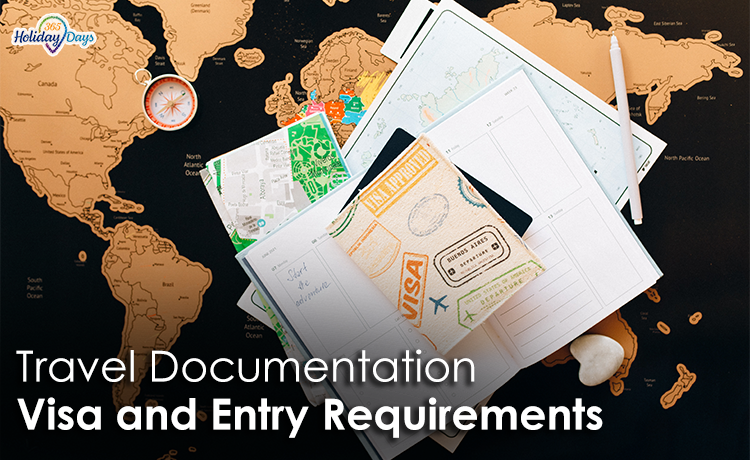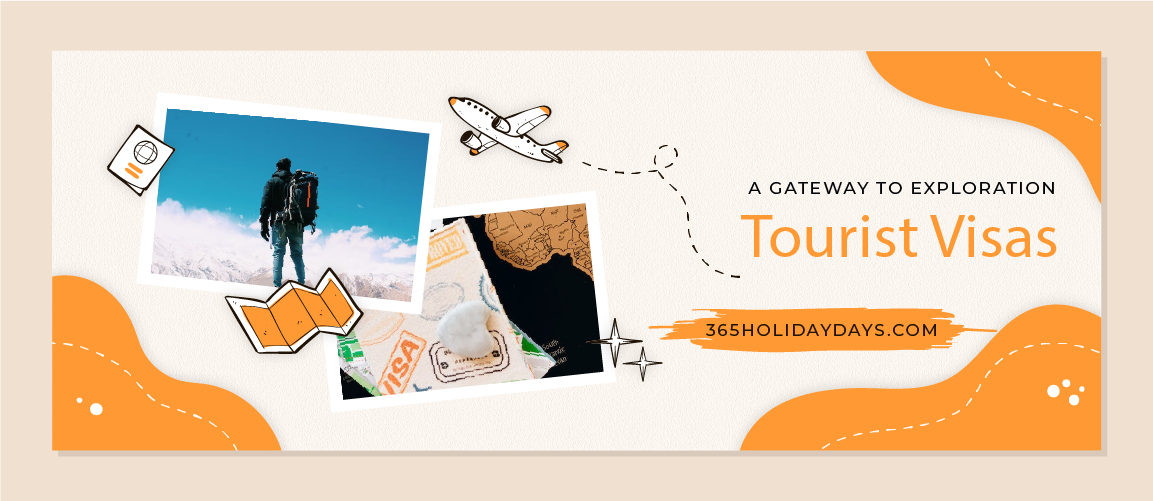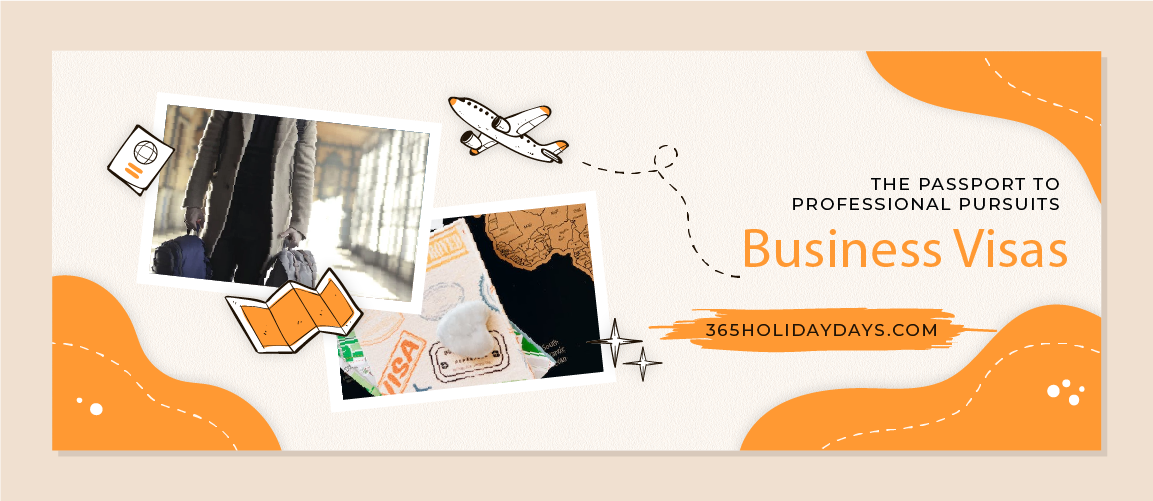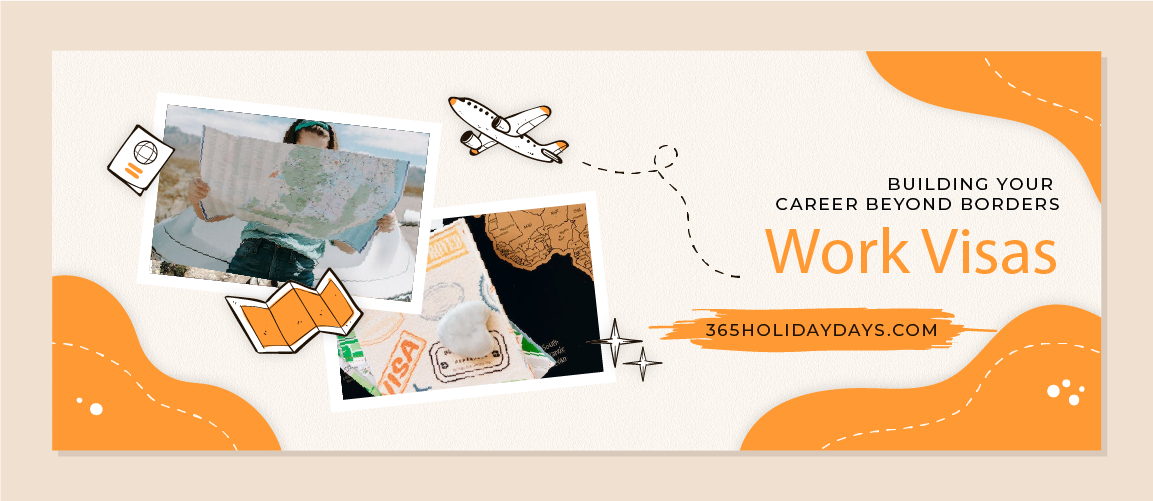
Traveling the world is a dream that ignites our sense of adventure, but it often involves a journey through the labyrinthine world of visas and entry requirements. Like an intricate puzzle, each destination presents its unique set of rules and regulations, transforming the act of travel into a thrilling challenge. Join us as we embark on a journey of discovery into the complex universe of travel documentation, unraveling the mysteries, and finding the keys that unlock the doors to incredible adventures.
Decoding the Visa Conundrum
Visas are like keys to kingdoms, granting you access to the lands you wish to explore. But not all visas are created equal, and understanding the intricacies is vital.
Tourist Visas: A Gateway to Exploration

Tourist visas are your trusty companions for leisurely adventures. We’ll delve into the different types of tourist visas, how to obtain them, and the duration of stay they offer.
- Types of Tourist Visas:
- Single Entry Tourist Visa: This visa allows you to enter the country once during a specified period. After exiting, you’ll need to reapply for a new visa if you wish to return.
- Multiple Entry Tourist Visa: A multiple entry visa permits you to enter and exit the country multiple times during its validity period. It’s ideal for travelers planning to explore neighboring countries or return trips.
- Transit Visa: Designed for travelers who are passing through a country en route to their final destination. Transit visas typically allow a brief stay in the connecting city.
2. How to Obtain a Tourist Visa:
The application process for a tourist visa can vary widely depending on the country you plan to visit. However, there are some common steps you can expect:
- Check Visa Requirements: Visit the official website of the embassy or consulate of your chosen destination to check the specific requirements for a tourist visa.
- Complete the Application Form: Fill out the visa application form with accurate and up-to-date information. Be thorough and honest, as discrepancies can lead to visa rejections.
- Gather Required Documents: As mentioned earlier, gather all necessary documents, including your passport, passport-sized photos, travel itinerary, financial statements, and any additional documents required by the country’s embassy or consulate.
- Pay Visa Fees: Pay the required visa application fees, which can vary in amount and payment methods. Keep the payment receipt as proof.
- Attend Visa Interview: In some cases, you may be required to attend a visa interview at the embassy or consulate. Be prepared to answer questions about your travel plans and provide additional documentation if requested.
- Wait for Processing: The visa processing time varies by country and can take several weeks. Monitor the status of your application using the tracking system provided by the embassy or consulate.
3. Duration of Stay:
The duration of stay permitted on a tourist visa varies widely, ranging from a few days to several months. It’s crucial to understand the maximum length of your stay, as overstaying your visa can result in fines, deportation, or future travel restrictions.
4. Extending Your Stay:
If you wish to extend your stay in the host country, inquire about the possibility of visa extensions before your initial visa expires. Some countries allow extensions for tourist visas under specific conditions.
Business Visas: The Passport to Professional Pursuits

For business travelers, the right visa is paramount. Learn about business visa categories, required documents, and the fine line between business and leisure.
- Types of Business Visas:
- Business Visitor Visa: Designed for short-term visits for business meetings, conferences, and negotiations.
- Investor Visa: Intended for individuals seeking investment opportunities or establishing businesses in foreign countries.
- Employment Visa: Necessary for expatriates relocating for work or individuals employed by international companies.
- Conference or Seminar Visa: For attendees of conferences, seminars, and workshops.
- Business Expansion Visa: For those aiming to expand their business operations or explore new markets abroad.
2. Required Documents:
Business visa requirements can be extensive and country-specific. Generally, applicants need the following:
- Invitation Letter: An invitation from a host company or organization, specifying the purpose and duration of the visit.
- Proof of Business Ties: Evidence of your business connections, such as letters from clients, partners, or potential collaborators.
- Travel Itinerary: A detailed plan of your trip, including meeting schedules, conferences, and any leisure activities (keep these separate).
- Financial Statements: Proof of sufficient funds to cover your stay and business expenses.
- Valid Passport: Ensure your passport is valid for at least six months beyond your intended stay.
- Visa Application Form: Accurately complete the business visa application form, which is often available online.
- Photographs: Provide passport-sized photos meeting the embassy or consulate’s specifications.
- Health Insurance: Some countries require proof of travel health insurance covering medical emergencies.
- Criminal Background Check: Depending on the destination, a police clearance certificate may be necessary.
3. The Fine Line Between Business and Leisure:
Business travelers often mix work and leisure during their trips, which can raise concerns at immigration checkpoints. It’s crucial to maintain a clear distinction between business and leisure activities:
- Business Activities: Attend meetings, conferences, and work-related events as stated in your invitation letter and itinerary.
- Leisure Activities: Any sightseeing, tourism, or recreational activities should be planned separately from your business commitments.
- Maintain Documentation: Keep records of your business-related expenses, as these can validate the purpose of your trip if questioned.
4. Business Visa Duration:
The duration of a business visa can vary, ranging from a few days to several years, depending on the type and purpose of your visit. Always adhere to the visa’s validity and exit the country before it expires.
5. Extending Business Visas:
For extended business stays, inquire about visa extensions before your initial visa expires. Some countries allow for extensions under specific conditions.
Student Visas: Embarking on an Educational Odyssey

Studying abroad is a life-changing experience. We’ll discuss student visas, enrollment requirements, and work opportunities while studying overseas.
1. Types of Student Visas:
Student visas come in various forms, depending on your academic pursuits and the country you plan to study in:
- Student Visa: The standard student visa for full-time degree-seeking students.
- Exchange Student Visa: Designed for students participating in exchange programs between universities.
- Language Student Visa: For those enrolling in language courses or programs.
- Work and Study Visa: Allows students to work part-time while pursuing their studies.
- Post-Graduate Work Visa: Provides the opportunity to work after completing your degree.
2. Enrollment Requirements:
- Letter of Acceptance: You’ll need an official letter of acceptance from an accredited educational institution in your host country.
- Financial Proof: Demonstrate that you have the financial means to cover your tuition fees, living expenses, and any additional costs associated with your studies.
- Health Insurance: In some countries, you must provide proof of health insurance coverage during your stay.
- Language Proficiency: Depending on the language of instruction, you may need to demonstrate proficiency in the language through standardized tests like IELTS or TOEFL.
3. Work Opportunities While Studying:
Many countries allow international students to work part-time while pursuing their studies. This offers several advantages:
- Financial Support: Part-time work helps cover living expenses and reduces the need for extensive savings.
- Skill Development: It provides the opportunity to gain work experience in a foreign country, enhancing your resume.
- Cultural Immersion: Working part-time can immerse you in the local culture and improve language skills.
4. Work Limitations and Regulations:
- Work Hours: Most countries impose limits on the number of hours you can work per week during the academic year (e.g., 20 hours per week) to ensure your primary focus remains on your studies.
- Full-Time During Breaks: Students are often allowed to work full-time during scheduled breaks, such as summer vacations.
- On-Campus Work: Some countries permit international students to work on-campus without additional work permits.
5. Post-Graduate Opportunities:
Many countries offer post-graduate work visas, allowing you to stay and work after completing your studies. These visas are an excellent way to gain practical experience and potentially transition to a longer-term work visa or permanent residency.
Work Visas: Building Your Career Beyond Borders

The allure of working in foreign lands is undeniable. Find out about work visas, job prospects abroad, and employer sponsorship.
1. Types of Work Visas:
Work visas come in various categories, each designed to accommodate specific professional needs and circumstances:
- Temporary Work Visa: Allows you to work in a foreign country for a limited duration, often tied to a specific job or project.
- Skilled Worker Visa: Designed for individuals with specialized skills, qualifications, or professional expertise.
- Intra-Company Transfer Visa: Facilitates the transfer of employees within multinational corporations.
- Entrepreneur or Startup Visa: For those looking to launch or invest in businesses abroad.
- Permanent Residency or Green Card: Provides long-term work authorization and a path to permanent residency or citizenship.
2. Job Prospects Abroad:
- Research and Networking: Start by researching the job market in your desired destination. Online job boards, professional networking platforms, and government employment agencies can be valuable resources.
- Consult Recruiters: International recruitment agencies and headhunters specialize in matching candidates with opportunities overseas.
- Language Proficiency: Depending on the country and industry, fluency in the local language may be a significant asset.
- Skill Enhancement: Consider acquiring additional skills or certifications that are in demand in your target job market.
3. Employer Sponsorship: Your Gateway to Work Visas:
Employer sponsorship is often a critical component of securing a work visa. Here’s how it works:
- Job Offer: First, you must receive a job offer from a company or organization in your host country. The employer typically initiates the visa application process.
- Labor Market Test: In some cases, the employer may need to demonstrate that there are no qualified local candidates available for the position, ensuring that the hiring of a foreign worker does not negatively impact the local job market.
- Visa Application: Once the job offer is accepted, the employer initiates the work visa application on your behalf, providing the necessary documentation and financial support.
4. Visa Application Process:
The specific steps and requirements for work visa applications vary by country. However, common elements include:
- Job Offer Letter: A formal offer of employment from your prospective employer.
- Proof of Qualifications: Evidence of your qualifications, certifications, and professional experience.
- Medical Examination: Some countries require a medical examination to ensure you meet health requirements.
- Criminal Background Check: A clean criminal record is typically a prerequisite.
- Visa Fees: Be prepared to pay application fees, which can vary in amount.
5. Building a Global Career:
Securing a work visa and employment abroad is not only a career advancement but also a personal adventure. It allows you to immerse yourself in new cultures, expand your professional network, and gain a broader perspective on your industry. Remember that each country’s work visa process is unique, so thorough research and adherence to regulations are essential for a successful transition.
Entry Requirements: Beyond the Visa
While visas often take the spotlight, other entry requirements can’t be ignored.
Passport Power: The Global Passport Ranking
Discover how your passport’s strength can affect your travel freedom and which passports hold the most power in today’s world.
Entry Permissions and Health Regulations
- Types of Health Certificates:
- COVID-19 Health Certificate: In response to the global pandemic, many countries now require travelers to provide proof of a negative COVID-19 test result before entry. Some may also request a certificate indicating COVID-19 vaccination status.
- Yellow Fever Vaccination Certificate: Required for travelers entering regions where yellow fever is endemic.
- International Certificate of Vaccination or Prophylaxis (ICVP): A document certifying that you have received required or recommended vaccinations, such as those for polio or hepatitis A, before entering specific countries.
- General Health Certificate: Occasionally, countries may request a general health certificate issued by a medical professional, stating that you are in good health and free from contagious diseases.
2. Vaccination Requirements:
- COVID-19 Vaccination: In light of the pandemic, some countries have started requiring proof of COVID-19 vaccination as a condition for entry. Travelers may need to show a vaccination card or an official certificate.
- Yellow Fever Vaccination: Yellow fever-endemic countries may demand proof of yellow fever vaccination, usually in the form of an International Certificate of Vaccination.
- Childhood Immunizations: Some nations may require proof of childhood vaccinations as part of their entry requirements.
Travel Authorizations and E-Visas
In an increasingly digital world, electronic travel authorizations and e-visas are simplifying entry procedures. Learn how to obtain these documents.
Conclusion: Your Passport to Global Adventures
While navigating the world of travel documentation may seem daunting, it’s a crucial step on the path to fulfilling your wanderlust. By understanding visa and entry requirements, you hold the key to unlocking a world of adventures, cultures, and experiences. So, prepare your documents, follow the guidelines, and embark on your next journey with confidence. The world awaits, and now you’re armed with the knowledge to conquer its borders. Safe travels!
